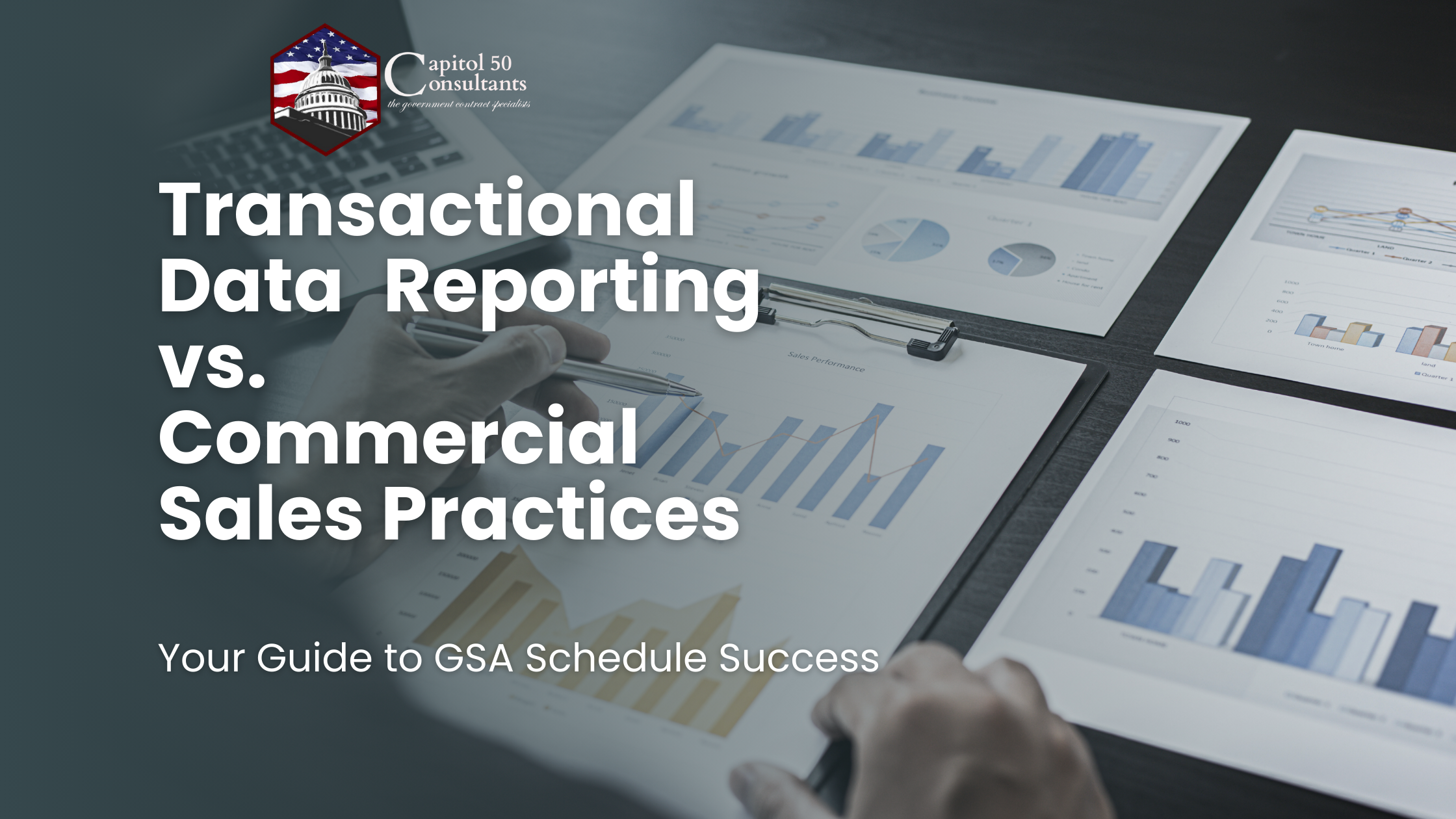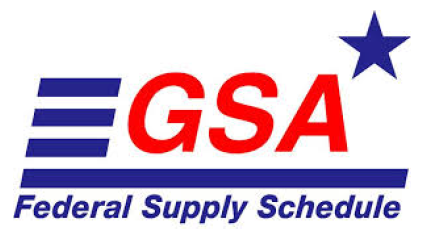Transactional Data Reporting (TDR) vs. Commercial Sales Practices (CSP)
Did you know the U.S. federal government spends over $600 billion annually on contracts? Businesses with a GSA Schedule gain access to this vast opportunity. However, to secure a GSA Schedule, companies must navigate the intricacies of Transactional Data Reporting (TDR) and Commercial Sales Practices (CSP).
Both paths have their advantages, but each requires a clear strategy, accurate compliance, and a tailored approach to pricing. Without expert guidance, many businesses face delays, rejections, or costly penalties. That’s where Capitol 50 Consultants comes in—to simplify the process and help you succeed.
What Are Transactional Data Reporting (TDR) and Commercial Sales Practices (CSP)?
Transactional Data Reporting (TDR)
TDR is designed to provide the government with granular insights into sales transactions. Businesses opting for TDR must report detailed data, including:
- Product descriptions and SKUs.
- Quantities sold.
- Prices charged.
- Customer details (e.g., government agency).
TDR eliminates the need for CSP disclosures, making it an appealing option for businesses with advanced sales-tracking systems.
Pros of TDR:
- Simplifies the application process by removing CSP requirements.
- Offers flexibility in pricing without the need to justify commercial terms.
Cons of TDR:
- Demands comprehensive tracking and frequent reporting.
- Time-intensive if you lack automated systems.
Commercial Sales Practices (CSP)
CSP requires businesses to disclose their commercial pricing structure to ensure the government receives fair pricing compared to other customers. This includes:
- Discounts offered to your largest customers.
- Pricing tiers based on customer size or order volume.
- Any special terms provided to non-government clients.
Pros of CSP:
- Straightforward for companies with established, consistent pricing models.
- Less administrative burden compared to ongoing TDR compliance.
Cons of CSP:
- Requires meticulous documentation of commercial sales.
- Errors in disclosure can lead to contract cancellations or audits.
How to Choose Between TDR and CSP
Selecting the right path depends on your business model and resources:
- Opt for TDR if you have robust reporting tools and want to avoid disclosing commercial pricing structures.
- Stick with CSP if your pricing is consistent and easily documented.
Capitol 50 Consultants evaluates your unique circumstances and helps you select the path that aligns with your goals, resources, and long-term success.
Steps to Navigate TDR and CSP Compliance
Step 1: Evaluate Your Sales and Pricing Structures
Capitol 50 begins by assessing your pricing models and sales tracking capabilities. We’ll determine if your business is better suited for TDR or CSP and help you build a compliance roadmap.
Step 2: Build Accurate and Compliant Systems
For TDR applicants, this means implementing detailed reporting mechanisms to capture every sale accurately. For CSP applicants, it’s about creating clear, accurate disclosures of pricing structures.
Our team provides:
- Customized TDR Reporting Tools: Automate and streamline your data submission process.
- Detailed CSP Checklists: Ensure all pricing details are disclosed accurately and in compliance with GSA standards.
Step 3: Develop a Competitive Pricing Strategy
Your pricing must be competitive, compliant, and aligned with GSA expectations. Capitol 50 helps you:
- Benchmark prices against competitors.
- Highlight unique value propositions in your offering.
- Ensure your pricing strategy complies with government regulations.
Step 4: Submit a Winning GSA Schedule Application
Your application is the cornerstone of your success. Capitol 50 ensures every element is tailored to your business, free of errors, and designed to impress GSA contracting officers.
Step 5: Ongoing Support for Compliance and Growth
Winning a GSA Schedule contract is only the beginning. Capitol 50 provides post-award support to:
- Maintain compliance with TDR or CSP requirements.
- Respond to audits and reporting requests.
- Scale your government sales effectively.
Avoid Costly Mistakes
TDR Pitfalls to Avoid:
- Overwhelming your team with manual reporting tasks.
- Failing to track required data accurately, leading to penalties.
CSP Pitfalls to Avoid:
- Inconsistent or incomplete pricing disclosures.
- Misaligned pricing strategies that fail to meet GSA benchmarks.
Capitol 50 Consultants ensures you sidestep these common issues, protecting your contract and your bottom line.
Why Choose Capitol 50 Consultants?
Capitol 50 is your trusted partner in government contracting. We specialize in simplifying the complexities of TDR and CSP, helping businesses secure GSA Schedules and grow their government sales.
Our Key Services:
- Tailored Guidance: Custom strategies for TDR and CSP compliance.
- Streamlined Processes: Reduce time-to-approval with proven systems.
- Expert Support: From application to post-award success, we’re with you every step of the way.
Take Action Today
Are you ready to navigate TDR and CSP requirements with ease and confidence? Capitol 50 is here to help you win government contracts and transform your business.
What’s Next?
- Book Your Free 30-Minute Consultation: Speak with our experts about your specific needs and get actionable advice tailored to your business.
- Sign Up for Members Access: Join our exclusive Members Portal to unlock advanced resources, industry insights, and personalized assistance.
🔑 Don’t miss this opportunity—secure your GSA Schedule and start winning government contracts now.
👉 Sign Up for Members Access Today
Capitol 50 Consultants—your partner in simplifying government procurement and driving results. Let’s secure your success!




